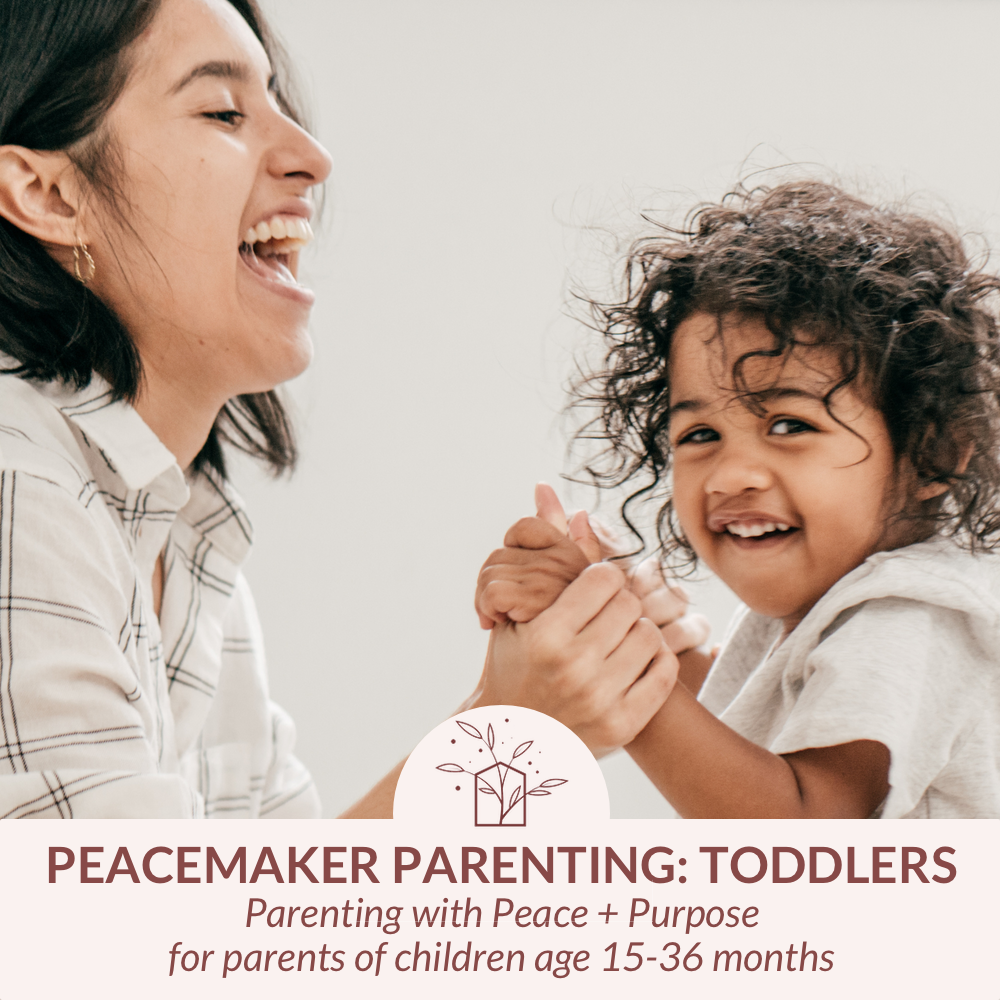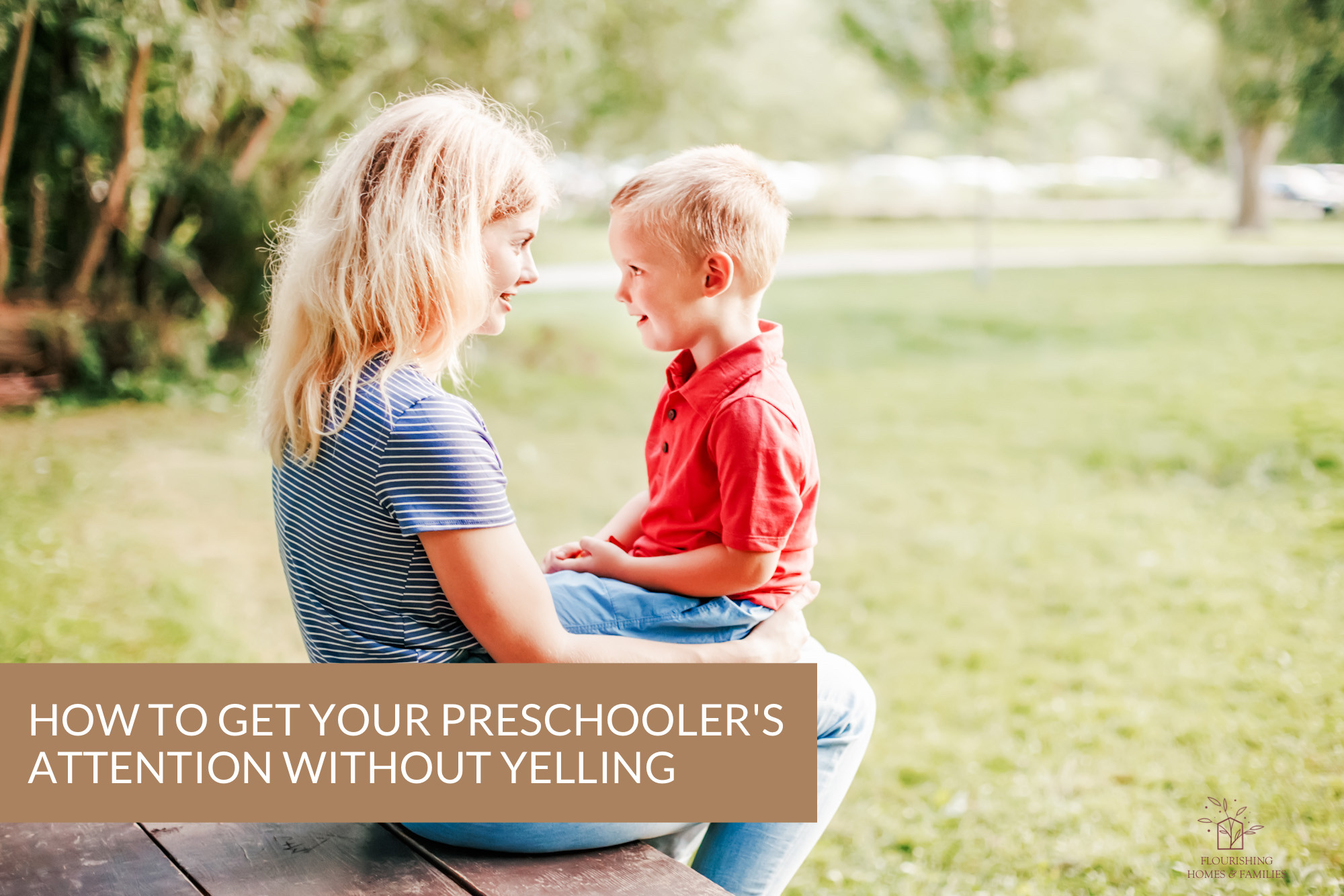
No one really wants to have to yell at their kids to get their attention, right? The thing is, children's brains transition much more slowly than adult brains do, which means even if they hear you talking, you don't necessarily have their attention. Here are four easy ways to get their attention without yelling, while also building connection and strengthening your bond with your child.
1. Be silly
Getting down on their level and being silly and playful invites them from their world of fun and imagination and into your world of fun.
- "I can't remember, are your eyes purple? Do you have purple eyes? Can I see them?"
- "Are my eyes opened or closed?" (Then keep one eye open and one eye closed like you're winking at them.)
- "My tongue! It's stuck out! I can't get it back in! I need some one to poke my tummy so my tongue will pop back in my mouth!"
2. Be curious
When you take time to notice what they're engaged in or mention something you admire or love about what they're doing, it gently shifts their focus to you.
- "I see you're coloring a rainbow. It looks like you used all of the colors and made it really big and bright. What is your favorite thing about this picture?"
- "It looks like you're having fun playing with your Paw Patrol toys. What kind of adventure are they on?"
3. Gently touch their shoulder, cheek, or chin
Getting down at eye level or lower disarms children and helps them instinctively know that you are not there for a power struggle or to control them. Gently touch their shoulder, cheek, leg, or chin to get their attention while asking a question about the activity they're engaged in. "You're paying really close attention to this LEGO project. What are you building?
4. Sing or whisper
If you need their attention right away, and can't get close to them, try singing their name or even whispering if you're close enough that they'll hear it. This is a low-pressure way to get their attention and help draw them to you.
5. Instead of counting to three, have them count
Many parents use the 1...2...3... method to get their children to listen or obey. Instead of counting to get your child's attention, help them access the logical and problem-solving parts of their brain by inviting them to count.
- "How many fingers am I holding up?" (If they answer and then look away quickly, do it again, or quickly change how many fingers you're holding up so they pay closer attention.)
Children can easily get lost in their own imaginative world and focused on their own agenda - and that's a good thing, it's one of the things we love about them! As a Peacemaker Parent, you can gain their attention without getting harsh or yelling, and draw them back into a trusting, safe, and peaceful "real world."
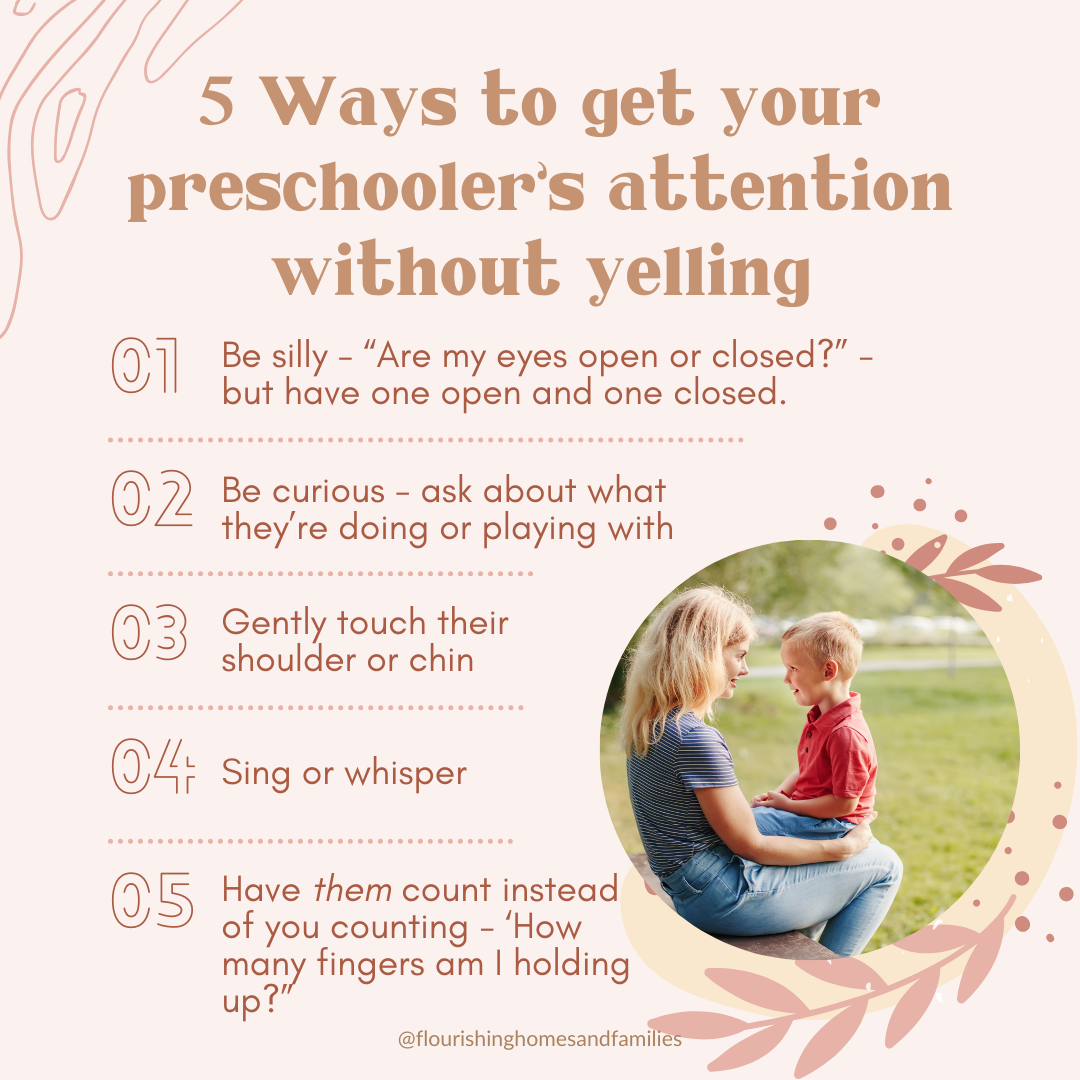
Want to learn more about Peacemaker Parenting Preschoolers? Our upcoming LIVE workshop will fill your parenting toolbox with trust-based, peacemaking parenting tools, especially for the preschool years.
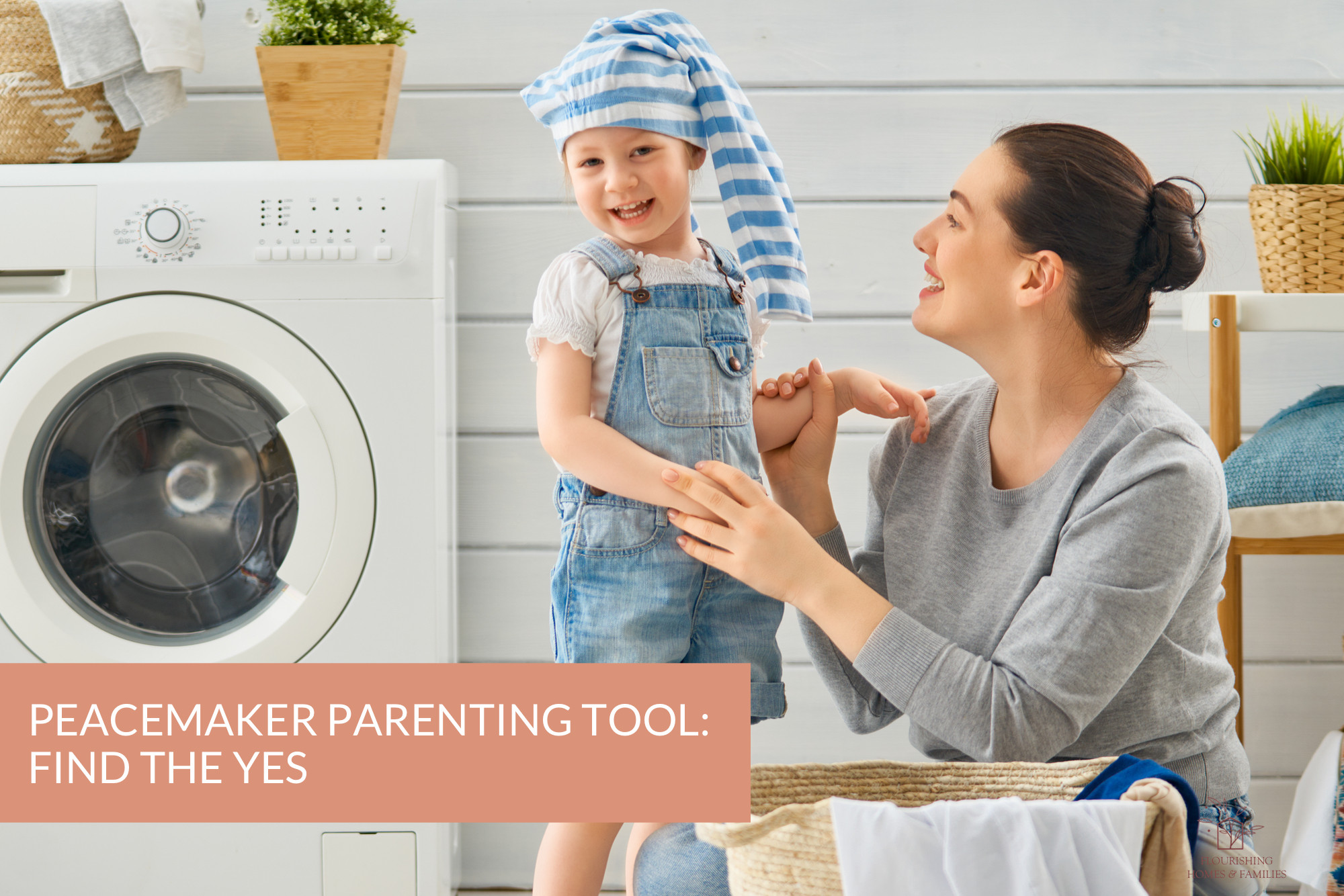
In the fast-paced world of parenting, it's easy to find ourselves uttering those familiar words: "No," "Don't," and "Stop." But did you know that these seemingly harmless words can trigger a cascade of stress-inducing reactions in both your child's developing brain and your own? In this blog post, we'll explore the power of "yes" and why telling children what to do, rather what not to do, can be a game-changer in cultivating harmony in your home.
THE SCIENCE BEHIND "NO"
When we constantly resort to "no," we unwittingly release a slew of stress-producing hormones and neurotransmitters in both our children's and our own brains. These chemicals can immediately interrupt crucial brain functions, leading to diminished logic, reason, language processing, and communication. To make matters worse, a disapproving frown when saying "no" can release even more stress hormones, contributing to increased anxiety and irritability. Ultimately, this can undermine the precious bonds of connection and trust between you and your child, which ultimately can result in more power struggles!
THE SCIENCE BEHIND "YES"
Of course, we're not suggesting that you should never say "no" to your child; that's simply unrealistic. No is a complete sentence and children do need to learn it! (Though you may have noticed your young child has most definitely learned the power of "no!" and you hear it quite often!)
Rather than relying on "no", we suggest a powerful alternative: the art of finding the "yes" and telling your little ones what to do rather than what not to do.
Here are some practical examples to illustrate the shift:

THE PATH TO PARENTING AS A PEACEMAKER
"Find The Yes" is just one of the valuable tools we're excited to share in our upcoming Peacemaker Parenting Preschoolers workshop this month. If you're THE parent of a 3-5 year old who is seeking to parent with peace and purpose while breaking generational cycles of harsh parenting and physical punishment, this workshop is designed specifically for you.
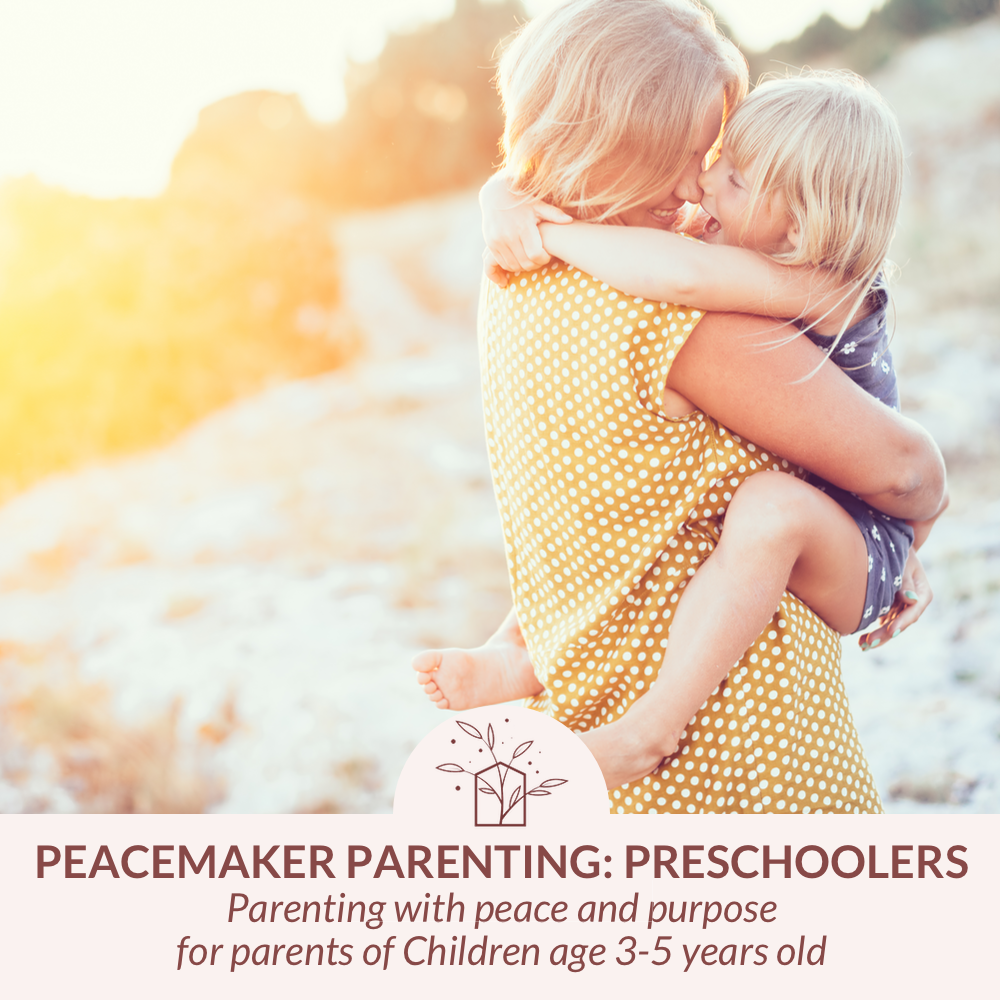
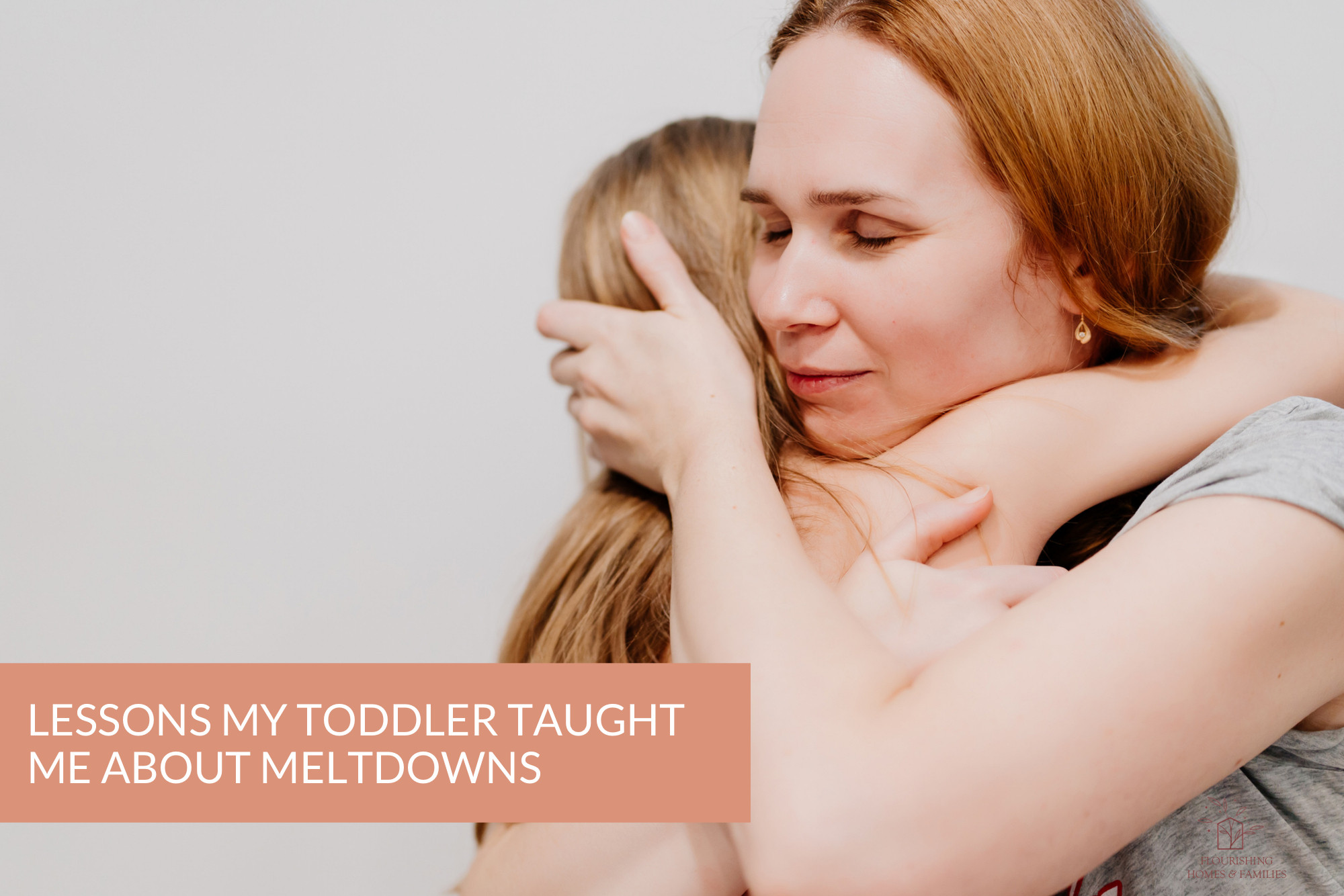
My toddler seemed to be having fun. Everything seemed great–but then she saw that her brother had one of the 20 yellow fish toys they’d been happily sharing for an hour. She began to melt. We were outside in our yard, but we were living in a busy neighborhood and the screams and flailing became really intense. My mind immediately went to “What on earth will my neighbors think of us?!” and I became dysregulated myself. The logic I tried to use to help her was not working and things were just ramping up. So I carried my three-year-old upstairs to a quieter place to try to figure out what was going on–also to hide from the public eye, because who wants that kind of pressure?! I was trying to stay calm but to be completely honest, I was in tears too. I did not grow up in a community that “navigated” toddler meltdowns with much grace–they weren’t really allowed and moms who navigated or tolerated them with anything besides punishment were often shamed. I didn’t really know what to do, but I do remember mustering all of the willpower I could and I decided that even if I didn’t know what to do exactly, I wasn’t going to lose it with my kid in this moment. The screaming lasted longer than I’d ever seen–20+ minutes. Nothing I mentioned seemed to help. My child was not interested in breathing, or I spy, or hugs, or connecting with me. She was just loud. But then I got a clue and she said something I won’t ever forget– “Help me, Mommy!” That was something I needed to get me through not only that meltdown but every other toddler meltdown I’d experienced with my children from that day on. I stayed nearby. Reminding her I was there when she was ready and that she was safe. It lasted a long time, but she settled and crawled into my lap. Sobs became less and less until they stopped. We re-connected and after a snack and a juicebox, we went back to playing.
Surely I’m not the only one who has taken a big ole toddler meltdown personally–right? (pssst, if you’re wondering the difference between a tantrum + a meltdown read here)
The intensity of demonstrated emotions can be a super huge burden to bear–especially if toddler emotions were met with punishment when you were a kid. Your toolbox may feel a bit empty as you find yourself in the middle of these instances. But the thing I took from that experience I shared above is this:
A meltdown isn’t any more fun for your toddler than it is for you.
I used to think a toddler who was screaming and yelling was doing something that they really wanted to do and just needed a lesson in self-control to learn how to control what they desired to do. That isn’t the case. I repeat: that is not the case!
That recognition of the frightening struggle a child is having during a meltdown opened my eyes to some other mindsets that have helped significantly as I’ve navigated more and more of these big feelings with my kids:
- A meltdown doesn’t feel any better for your toddler than it does for you–they are out of control
- When meltdowns happen, your toddler doesn’t know how to immediately get out of it
- Trying to force an end to a toddler meltdown doesn’t teach or help them with anything–suppression isn’t the answer
- One of the only things a parent can offer a toddler in the thick of a meltdown is a calm body of quiet support
- When a toddler is in meltdown mode reasoning is not an effective strategy
- Don’t set a time limit in your mind– you’re in this for the long haul with them and your love won’t waver. You are both safe
How does this help? Well, when we can get ourselves into such a posture of peace that their behavior doesn’t shake us, it helps everyone. And for as icky as it can feel for everyone during a meltdown moment, they do always end. That is another big one – These big feeling moments are loud and can feel so long, but they do not last forever. Being a calm and safe body in the middle of a feelings storm for your child is one of the few tools they can actually use to pull themselves out–remember that, mama. It’s a tough job–but you’re helping your child way more than you know when you’re able to keep, or reclaim your peace through these intense moments.
Want to hear more about what each of these things look like in practical everyday life? Do you have a particular struggle you’re trying to navigate that you want some coaching in? We have a toddler workshop coming up that will cover these things and more and we’d love to have you join us!

Encouraging toddlers to cooperate during toothbrushing can be a challenging task. However, it's important to prioritize their trust and avoid resorting to forceful measures that can harm both their dental health and your relationship. As parents, it's important to understand the reasons behind their reluctance and find creative ways to make toothbrushing a fun and enjoyable experience for them, while nurturing their trust in our leadership and guidance.
Understanding the Challenge:
It's not uncommon for young children to resist brushing their teeth. Not only do they not understand the importance of dental hygiene (no matter how many stories we tell or lectures we give), there can be other reasons why they protest teeth brushing:
- Sensory sensitivity: The sensation of toothbrush bristles and toothpaste foam can be overwhelming for some children, leading to discomfort or aversion.
- Autonomy and control: In toddlerhood, children are beginning to assert their independence, and toothbrushing may be seen as a task imposed on them, leading to resistance in toddlerhood (and beyond!)
- Boredom or lack of engagement: Brushing teeth can be seen as a mundane chore, lacking excitement or stimulation.
Peaceful + Playful Approaches to Helping Children Brush Their Teeth
- Make It a Game: Transform toothbrushing into a playful activity by turning it into a game. Use your imagination to create scenarios such as pretending to be a toothbrushing superhero or a silly dentist. Encourage your child to make animal sounds while brushing different parts of their mouth or play their favorite music during the process. These engaging activities help distract them from any discomfort and make the experience enjoyable.
- Lead by Example: Children often mimic their parent's behaviors. Allow your toddler to observe you brushing your teeth regularly, demonstrating the importance of oral hygiene. Make it a joint activity by brushing your teeth together, taking turns, or even letting them "help" brush your teeth. This creates a bonding experience and reinforces the habit in a positive manner. You can even play a tooth-brushing themed "Follow the leader" and let the copy your moves.
- Choose Kid-Friendly Toothbrushes and Toothpaste: Invest in toothbrushes designed specifically for toddlers, featuring vibrant colors, appealing characters, or favorite cartoon themes. Additionally, select a toothpaste with a pleasant taste, specifically formulated for young children. The enticing toothbrush and toothpaste options can make brushing time more exciting for your little one.
- Establish a Routine: Creating a consistent routine around toothbrushing helps children develop a sense of structure and expectation. Set aside specific times each day for brushing, such as after breakfast and before bedtime. Ensure that the routine remains consistent, even when traveling or during busy days. This familiarity will make toothbrushing feel like a natural and non-negotiable part of their daily life.
- Provide Choices and Autonomy: To foster a sense of control, offer your child choices within toothbrushing routines. Let them select their toothbrush or toothpaste flavor from pre-approved options. Additionally, allow them to choose whether they brush their top or bottom teeth first, before or after their bath, or in your bathroom or their bathroom. By empowering them to make decisions, you turn brushing into a task they feel they have some say in.
- Keep it short: Even adults find being poked and prodded in their mouths to be an overwhelming experience. While the ideal brush time may be two minutes, it is okay to build up to that over time. Gradually increase brushing time by incorporating enjoyable elements such as songs or timers. Singing while brushing or pretending to chase "green grimies" makes the process more engaging and establishes a time limit, ensuring your child knows when it will end. Visual times may be helpful for young children. Start small and gradually increase by 5-10 seconds each day.

- When you notice your toddler putting things in their mouth, swap it out for a toothbrush. This introduces the toothbrush in a neutral and no-pressure way and allows them to chew on and experiment with it.
- Bring a stuffed animal or doll and let them brush their toy's teeth before they brush their own.
- Swap turns - let them brush your teeth, then swap and you brush their teeth.
- Play a silly song or a Daniel Tiger Short while they brush their teeth.
- Make silly noises as if the germs are scared and running away from the toothbrush.
Helping toddlers develop good oral hygiene habits can be a challenging but essential task. By understanding why they may resist brushing their teeth and implementing playful and practical strategies, you can transform toothbrushing from a chore into an enjoyable routine. Remember, patience, consistency, and creativity are key in guiding your little one toward a lifetime of healthy smiles.
Share your tips and tricks in the comments!
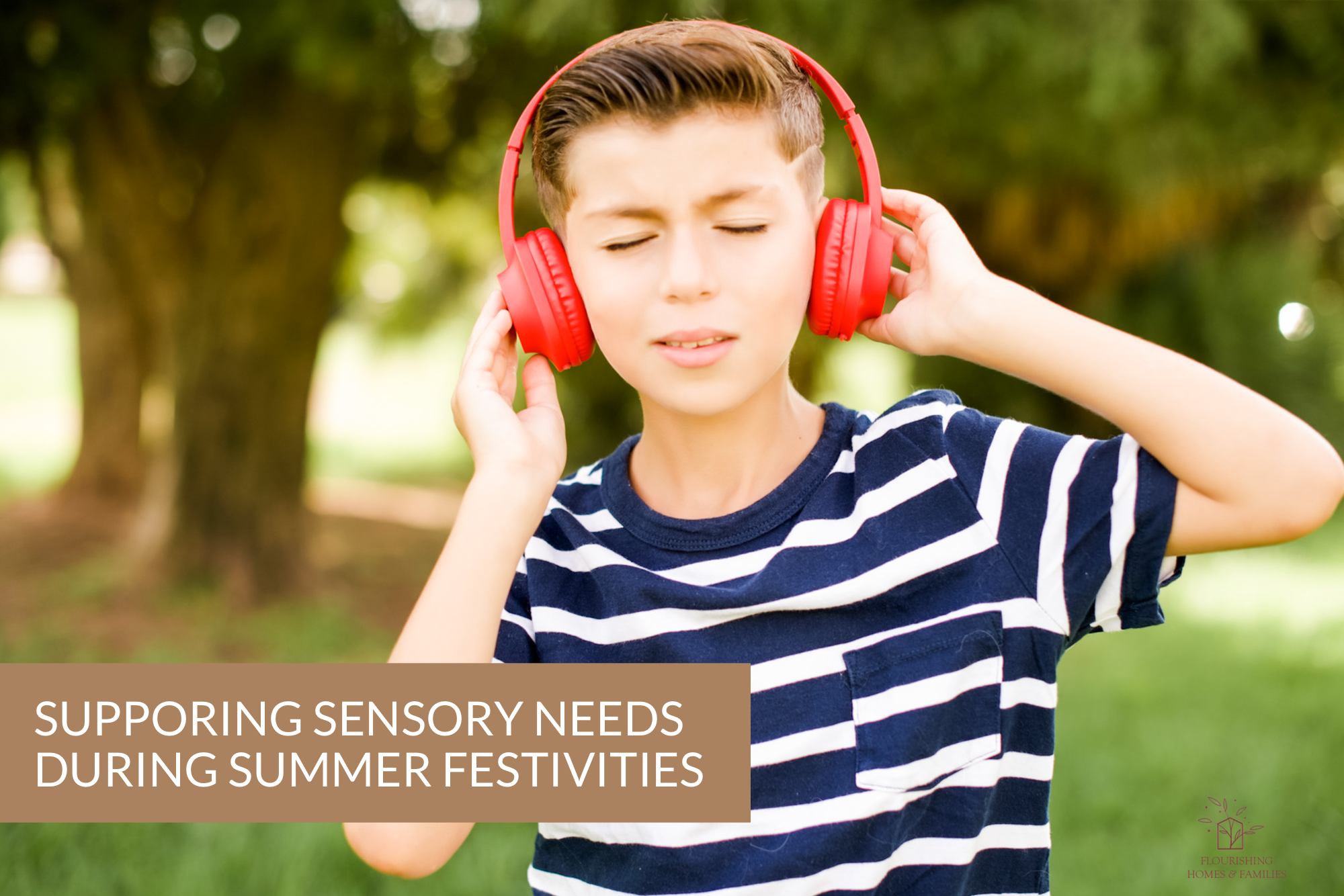
The Fourth of July is a time for celebration, marked by colorful fireworks, vibrant parades, and lively gatherings. However, for young children, neurodivergent people, and kids and adults with Sensory Processing Disorder (SPD), the heightened sights, sounds, and crowds can be overwhelming and lead to sensory overload. As caregivers and parents, it's essential to create a supportive environment that allows children with different sensory needs to enjoy the festivities while managing their sensory needs. Here are five tips to help children with SPD during July 4th celebrations.
Use Noise-Cancelling Headphones
Fireworks and loud noises are integral to Independence Day celebrations, but for children with SPD, they can be distressing. Noise-cancelling headphones act as a barrier, reducing the impact of sudden and loud sounds. They provide a sense of control, helping children with SPD feel more at ease and comfortable amidst the cacophony. Encourage your child to wear noise-cancelling headphones during firework displays or other noisy activities, ensuring they can still participate without overwhelming their senses.
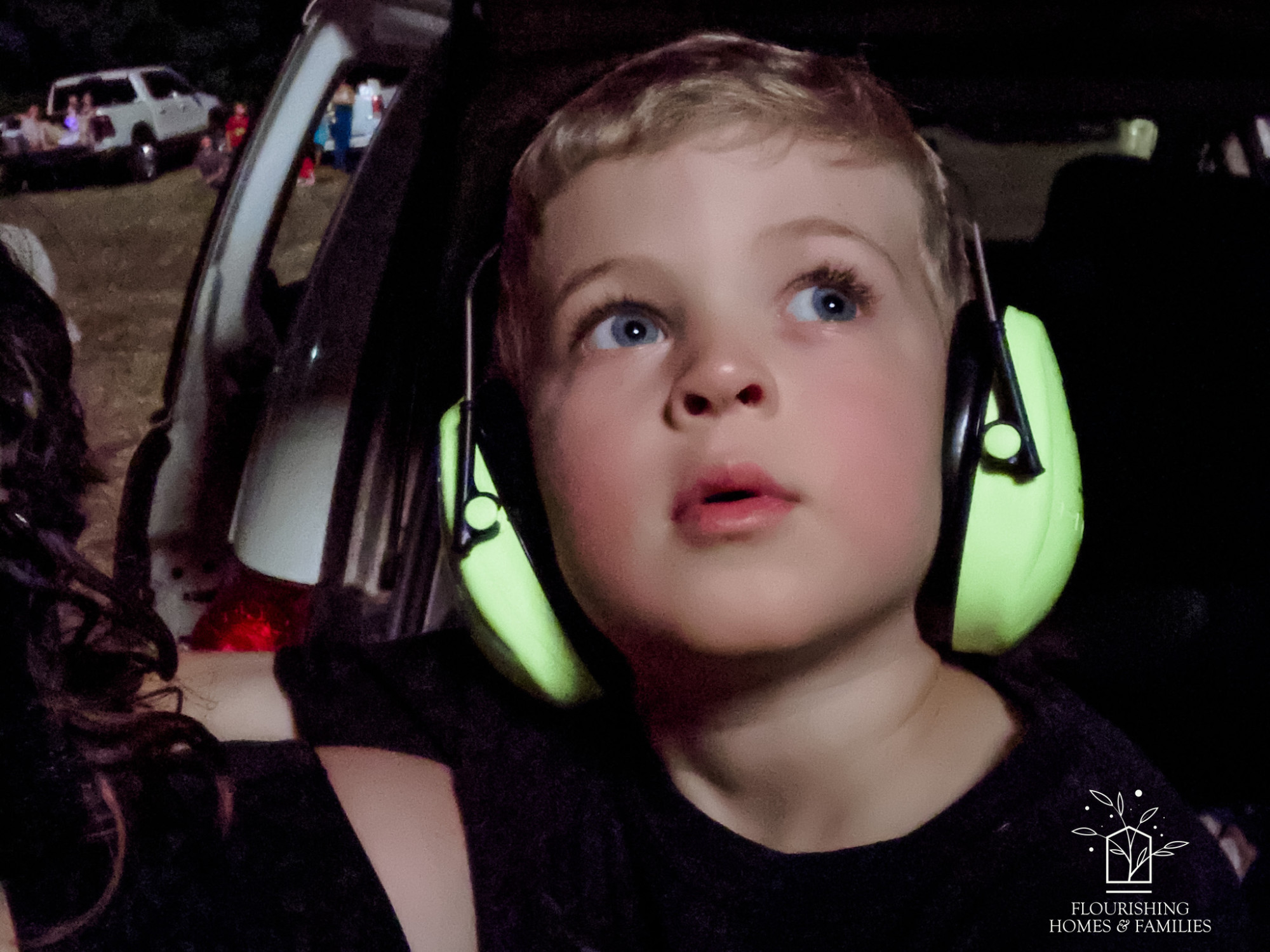
Our sensory-sensitive kiddo watching fireworks in 2020.
Stick to a Predictable Schedule:
Children with SPD often thrive on routine and predictability. During July 4th celebrations, maintaining a consistent schedule can help them feel grounded and reduce anxiety. Communicate the day's plan in advance, including any changes in routine, and discuss what to expect at each event or activity. By setting clear expectations and offering reassurance, you can help your child prepare mentally and emotionally, minimizing sensory challenges.
Bring a Weighted Blanket or Vest
Weighted blankets and vests provide deep pressure input, which can have a calming effect on children with SPD. The gentle, evenly distributed pressure stimulates the proprioceptive system, promoting relaxation and body awareness. Use a weighted blanket or vest during July 4th celebrations, especially in crowded or overwhelming situations. Ensure the child's comfort by choosing an appropriate weight and size that suits their specific needs. Consult with an occupational therapist to determine the ideal weight for your child. We have this one.
Designate a quiet space where your child can retreat when feeling overwhelmed. This can be a designated area indoors or a pop-up tent or canopy outdoors. Fill this space with soothing items, such as soft blankets, pillows, or sensory toys. Encourage your child to take breaks and step away from the hustle and bustle of the celebration when needed. This retreat offers a safe haven where they can self-regulate and recharge, ensuring a positive experience throughout the day. Our Grace Space instant download includes a Grace Space On-the-Go.
Plan Sensory-Friendly Activities
Seek out sensory-friendly activities that align with your child's preferences. Instead of crowded parades or firework displays, consider alternatives like attending a daytime celebration, visiting a sensory-friendly community event, or organizing a low-key gathering with close family and friends. Such activities may provide a less overwhelming environment, allowing your child to participate and enjoy the celebrations without feeling overloaded.
By implementing these ideas, you can create a sensory-friendly environment for children with different sensory needs during July 4th celebrations. Every child and family s unique, so tailor these strategies to meet your child's specific needs. Consulting with an occupational therapist can provide further guidance and personalized recommendations. With a little extra planning and consideration, you can plan a joyful and sensory-friendly experience on Independence Day.


